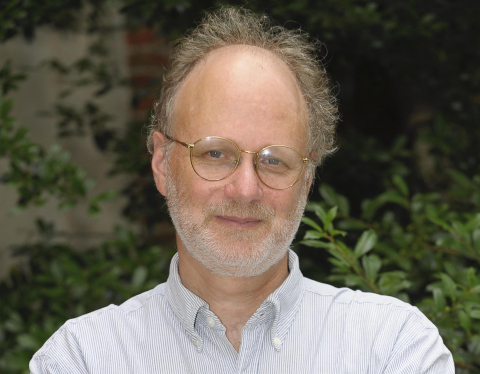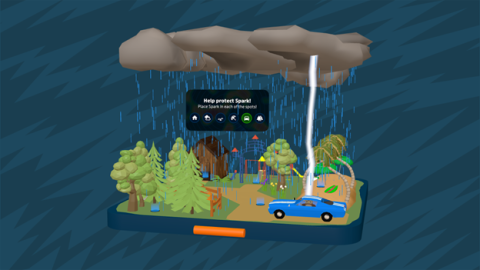Recent News & Accomplishments
2025
Addai sought University Career Center support for internship applications and interviews and landed an M&T Tech internship.
Why did you decide to study computer science at UMD and what do you hope to do with your degree? In high school, I developed a passion for computer science, especially building tools and leveraging automation to solve real-world problems and simplify everyday tasks. The University of Maryland’s strong computer science program and culture for innovation made it the perfect place to cultivate my skills and turn my passion into a career. Through my degree and the invaluable experiences I’ve gained here at UMD, I aim to develop software solutions that have a meaningful, widespread impact on... read more
Saptarashmi Bandyopadhyay investigates the potential of planning-based AI agents in applications such as autonomous vehicles, AR, climate conservation and logistics.
While most artificial intelligence (AI) applications today focus on generating text or identifying images, one University of Maryland Ph.D. student is exploring how AI can be designed to act. Saptarashmi Bandyopadhyay , a fifth-year doctoral student in the Department of Computer Science, has concentrated his research on AI agents—systems that operate autonomously in dynamic environments. From modeling deforestation in Indonesia to analyzing medical scans and helping to optimize disaster-disrupted supply chains, his work spans multiple real-world applications. “This began as a question of not... read more
Professor Cunxi Yu is the co-author of “ SmoothE: Differentiable E-Graph Extraction ”, which received the Best Paper Award at the 2025 Association for Computing Machinery (ACM) International Conference on Architectural Support for Programming Languages and Operating Systems (ASPLOS). The paper is a collaborative effort between Cornell University and the University of Maryland with support by an NSF research program. The paper focuses on the benefits of e-graphs and methods for the extraction of an expression from large areas of equivalent expressions in order to best meet optimization... read more
The program ranks No. 9 among the country’s public institutions and 16th overall, climbing a notch from last year.
The University of Maryland’s computer science graduate program ranks No. 9 among the country’s public institutions in the 2026 edition of U.S. News & World Report’s “Best Graduate Schools.” The program ranks 16th overall, climbing a notch from last year. UMD also ranks high in three computer science specialties: Artificial intelligence at No. 12 (No. 8 among publics) Programming language at No. 19 (No. 11 among publics) Systems at No. 20 (No. 11 among publics) "We're proud to see the University of Maryland's outstanding graduate programs receive the recognition they deserve across a broad... read more
For Howard Elman , research is a collaborative experience—one that can produce scientific discoveries that are far greater than the sum of their parts. A professor of computer science with an appointment in the University of Maryland Institute for Advanced Computer Studies (UMIACS), Elman has spent the past 40 years working with researchers around the world on complex problems like developing faster code for studying fluid dynamics and reactive flows. Reflecting on his career as he prepares to retire from the University of Maryland at the end of June, Elman says it is these types of... read more
Two computer science majors have been awarded 2025 scholarships by the Barry Goldwater Scholarship and Excellence in Education Foundation , which encourages students to pursue advanced study and research careers in the sciences, engineering and mathematics. Over the last 16 years, UMD’s nominations yielded 53 scholarships—second in the nation only to Stanford. UMD’s 2025 Goldwater Scholars are: Harikesh Kailad , sophomore computer science and mathematics double major Luiz Mata Lopez , junior computer science and mathematics double major They are among 441 Goldwater Scholars selected from 1,... read more
The two-year $1.3M project will support data systems research for tactical military networks.
University of Maryland Department of Computer Science Assistant Professor Alan Zaoxing Liu has received a $1.3 million research award from the U.S. Department of Defense through the Army Contracting Command to support his project on “Approximation-First Telemetry for Resource Efficient Situational Awareness in Tactical Networks.” With this research award, Liu aims to collaborate with the Army Research Laboratory (ARL) to generate new ideas and technologies in dynamic data processing systems. The two-year project will focus on developing computing systems that efficiently process large-scale... read more
Tech companies are racing to build the best artificial intelligence (AI) models, but amid the intense competition, safety issues—like user privacy and biased data—often take a back seat. Ramping up government regulation is one way to address these concerns, but regulators have struggled to keep up with the rapid pace of AI development. Recognizing the urgency of the issue, a team of University of Maryland researchers is developing a system that motivates tech companies to compete not only on capability, but on responsibility as well. The UMD team has proposed the first-ever auction-based AI... read more
CS majors Harshita Kalbhor and Grace Cai reflect on leadership, mentorship and building a more inclusive community in STEM.
On any given evening in the University of Maryland’s engineering labs, the hum of 3D printers and the glow of soldering irons signal another round of preparations for the next big robotics competition. But this year, something new is powering the workbench energy behind Robotics at Maryland (R@M): a historic shift in leadership. For the first time since its founding in 2008, the student-run underwater robotics team is being led by a woman president and vice president, with more women stepping into executive roles than ever before—an achievement timed fittingly with Women’s History Month and... read more
The multidisciplinary research uses virtual and mixed reality to teach lightning safety through an interactive game that brings storms to life.
In most situations, University of Maryland scientist Guangyang Fang would advise you not to walk into a lightning strike. But now, he’s encouraging everyone to dive right into a thunderstorm – in virtual reality, that is. Fang has recently released “Faraday Lightning Safety”, a mixed-reality game now available for free at the Meta Store. The game demonstrates how the Faraday cage effect – the phenomenon where an enclosed conductive structure shields its interior from external electric fields by redistributing charges and blocking electromagnetic waves – protects people from lightning during a... read more









